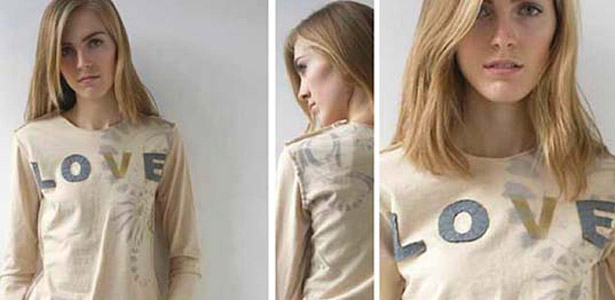Slow Fashion: Reconnecting Production and Consumption
We must take responsibility for our habits and accept that with every disposable t-shirt we buy, we are making a political statement
My grandparents live in a small village in the south of France where they grow most of the fruit and vegetables they eat. They raise their own chickens, pigeons, and rabbits. As a child, I spent most of my summers in their house helping them feed the animals, collect the eggs, and water the garden. One lunchtime, I cooked them a "stone soup" -- my first culinary experiment -- made of well water, stones, soil, and grass. From the glass wall at the back of their house, hilly vineyards and garrigue unfolded into the distance.
Today, that land is covered by rows of identical prefab houses. The butcher, who used to drive from Lozère to deliver his meat, no longer makes the trip. Where once there were three bakeries, only one remains. The little grocery store is gone. These days, my grandparents drive to the local "megamarket," Carrefour, to buy their butter. The tailor also closed, and the cobbler. More and more, people come to live in this village because the housing is more affordable than in Montpellier.
They buy their clothes and shoes at H&M and Zara. These cheap, poor-quality clothes satisfy a desire to wear what is hip in any given season, leading us to follow fashion dictates rather than create our own style. We find ourselves at parties wearing the same clothes, and, when they deteriorate, we throw them away rather than repair them, as once our grandmothers would have.
In its pursuit of profits, the fashion industry has relocated its production to North Africa, the Middle East, and Asia. After the clothes are manufactured, they are transported back to the consumers' countries, depleting oil reserves and increasing greenhouse-gas emissions. These foreign producers are under pressure to achieve the lowest possible costs and to deliver within the shortest time. Neither the environmental impact of their production nor the appalling working conditions of the laborers -- low wages, myriad accidents, and child labor -- are of particular concern.
If we refuse unfair prices and dangerous working conditions in our food systems, we must maintain the same principles in all sectors. Awareness of the environmental impact of human activities is growing. For food, it means buying more organic, local, and seasonal products. For fashion, it should mean more organic, local, and less seasonal. A piece of clothing should last for decades. Like a recipe passed down from generation to generation, we should pass our clothes down to our grandchildren.
Beyond the environmental and ethical considerations, choosing the items that compose our wardrobes should be as satisfying as shopping at local food markets. Finally discovering the little black cotton dress that fits your body perfectly should be as exciting as finding a perfect marbled côte de boeuf. Just as you might imagine the grilled meat paired with seasonal peas, green beans, and asparagus, imagine how the dress would look with the off-yellow kitten heels you bought in a vintage store ten years ago and the hat your mother gave you for your twentieth birthday. Or, just as you might serve the next day an informal lunch of cold beef, thinly sliced, with dark bread, mustard, and pickles, you would style down your new dress with leather-look leggings and a pair of hightops.
Both food and fashion matter; each is a way of sharing with others something important to you. Neither food nor fashion should leave us indifferent. Both are fundamental parts of human culture; they are ways to communicate new ideas and old traditions. In each case we must reconnect production and consumption. We must take responsibility for our habits and accept that with every factory-produced block of cheese and every disposable t-shirt we buy, we are making statements of philosophy, economics, and politics. Until we eat and dress in accordance with our beliefs, we are hypocrites contributing to an increasingly generic and unhealthy world -- a world where traditions, villages, lives, and ultimately the global environment are abandoned for the sake of immediate profits.
Image: Alabama Chanin.

